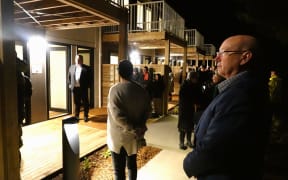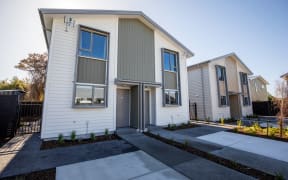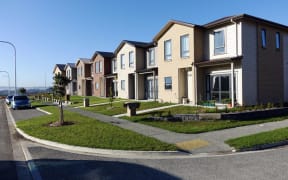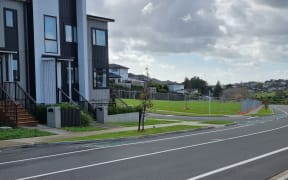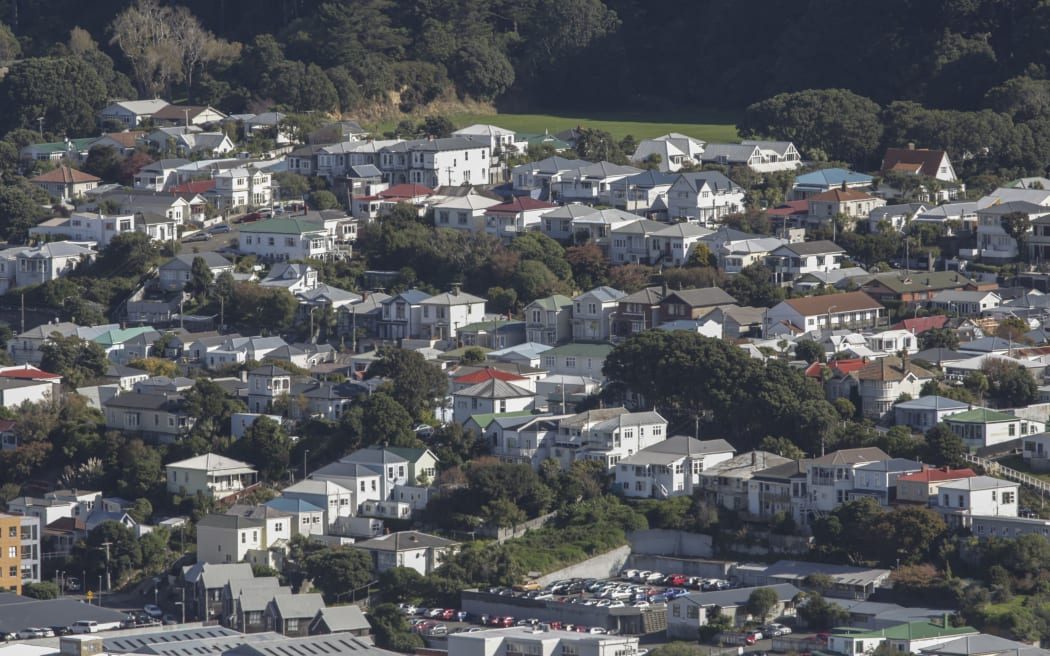
The Salvation Army is ready to build about 70 homes, but has been told the applications cannot be progressed. File photo. Photo: RNZ / Richard Tindiller
Community housing providers are putting the brakes on building desperately needed homes because there is no guarantee of government funding after June next year.
Those providers put a roof over the heads of more than 13,000 low-income whānau in Aotearoa.
There are more than 25,000 applicants on the public housing waitlist.
But while organisations like the Salvation Army were ready to build, work was stalling, Greg Foster, who heads up the organisation's housing arm, said.
The Salvation Army had two applications, totalling about 70 homes, before the Ministry of Housing and Urban Development which he was told could not be progressed, he said.
"We have land that we're getting resource consent for, but we've been told that there's no funding for us to build at this point."
That funding is for income-related rent subsidies (IRRS), which are paid to community housing providers, topping up tenants' rent to meet market rates.
Providers like the Salvation Army build their own homes by borrowing money, and the subsidies gives them certainty they can claw back those costs over time.
But they are only funded until June next year as part of the Public Housing Plan.
After that, there was a big question mark.

Housing Minister Chris Bishop. Photo: RNZ / Angus Dreaver
Housing Minister Chris Bishop could not shed any light on future plans when approached by RNZ.
"The previous government only funded future community housing places through until June 2025, leaving a fiscal cliff for the next government to consider," he said.
"The government is committed to supporting the community housing sector and I have been discussing with them how we do that."
The Ministry of Housing and Urban Development said funding for any new social housing developments would be a matter for the government to consider in Budget 2024 and subsequently.
Providers feared they would be left in the lurch with big bills to pay, Foster said.
"Right now I have about $400,000 or $500,000 of consulting fees, etc that we've had to pay out, in order to get a resource consent.
"I've spent that money, but it's actually uncertain as to whether we'll be able to move forward with some of those sites."
Providers were not after a big chunk of change from the government, he said.
"All I'm wanting is certainty over the next five years that there'll be a certain number of places available, so that we can continue to build ... and the only way we can do that is by having continuity of funding."
Accessible Properties chief executive Greg Orchard said his organisation was in a similar boat - and his message to Bishop was simple.
"To be really blunt, if there is no subsidy for subsidised housing, then nothing will be built," he said.
That could be a massive lost opportunity, he said.
For example, Accessible Properties had land in Tauranga and Western Bay of Plenty that could see 1700 new homes delivered.
"We've other smaller opportunities that are in the 50- to 70-home range, where we, or our partners, have had to walk away from those, because there's no future pipeline and there's no long-term funding available."
The pair were hopeful Bishop - who had previously spoken highly of their work - would prove his support by way of a pool of cash in the next Budget, which will be announced in May.
Sector needs assurance - Greens, Labour
Green Party co-leader Chloe Swarbrick told Morning Report community housing providers needed security.
"This government needs to commit to the security for those in the community housing sector because in lieu of that, they cannot plan for the future."
She said it was possible to build more public housing and increase the income related rent subsidy (IRS) if "we fix our tax system and if we invest properly in the infrastructure that all Zealanders agree is fundamental to living a good life".
Swarbrick said the government could not argue a $2.9 billion tax break for landlords over the next four years would trickle down to renters.
"We have a pretty unsustainable way right now of ensuring that people get into warm, dry and secure homes."
Labour's housing spokesperson Kieran McAnulty said his party would have continued the funding if it were in power.
"There's a simple fix here - do what Labour were going to do and confirm the funding, give community housing providers the certainty they need, give families in need hope that they're finally get a home and keep tradies in work."
Repeated questions to the government had garnered no commitment to funding the subsidy, which would "go great lengths" to lower the social housing waitlist, he said.
"They didn't wait for the budget to announce $2.9b tax cut for landlords, so they shouldn't wait until the budget to announce funding that will actually help people."

